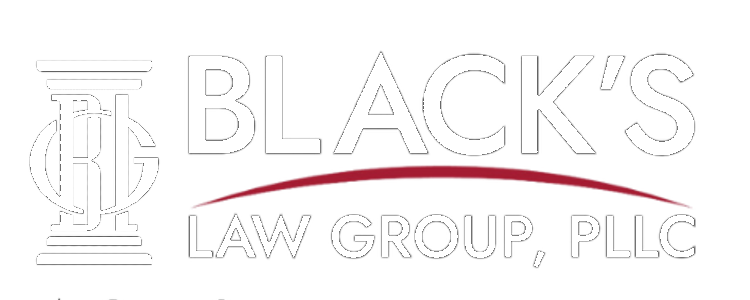Shootings. Stabbings. Barfights. Each of these types of incidents are a form of fighting and often result in people being charged with committing an Assault. Simply put, if you have been charged with some form of Assault, it means that the State believes that you have committed some act of violence towards another person.
Whether you or a loved one are in the crosshairs of the criminal justice system, you are likely afraid and concerned about what might happen. That’s where Black’s Law Group comes in. Our team of dedicated attorneys are a phone call away and prepared to answer your questions. Until then, you can read through the rest of this post to learn some of the basics of assault cases in Connecticut.
Basics of Assault charges
There are various types of Assault charges in Connecticut. However, at their most basic level, Assaults are instances where one person acts in some form of violent capacity towards another person.
What are the different degrees of Assault?
In Connecticut, there are three different “degrees” of Assault charges. Whereas Assault in the First Degree is the “most” serious, Assault in the Third Degree is the “least” serious. This is not to say that Assault in the Third Degree charges are not serious: they are. However, each degree of Assault charge carries with it a differing criminal classification.
- Assault in the First Degree – class B felony
- Assault in the Second Degree – class D felony, unless aggravating circumstances apply, which can escalate it to a class C felony
- Assault in the Third Degree – class A misdemeanor
Assault in the First Degree
Assault in the First Degree applies to 5 types of circumstances. Specifically, a person is guilty of this charge when:
- With intent to cause serious physical injury to another person, he causes such injury to such person or to a third person by means of a deadly weapon or a dangerous instrument
- With intent to disfigure another person seriously and permanently, or to destroy, amputate or disable permanently a member or organ of his body, he causes such injury to such person or to a third person
- Under circumstances evincing an extreme indifference to human life he recklessly engages in conduct which creates a risk of death to another person, and thereby causes serious physical injury to another person
- With intent to cause serious physical injury to another person and while aided by two or more other persons actually present, he causes such injury to such person or to a third person
- With intent to cause physical injury to another person, he causes such injury to such person or to a third person by means of the discharge of a firearm
Each of these versions of Assault in the First Degree are classified as a class B felony. In Connecticut, class B felonies carry up to 20 years of imprisonment. Additionally, if you are convicted under the “deadly weapon, dangerous instrument” subsection, you will face a 5-year mandatory minimum period of imprisonment.
Finally, depending on “who” the victim is, you could be facing a 10-year mandatory minimum period of imprisonment. The aggravating circumstances where this mandatory minimum would apply are reserved for situations where either the victim is a witness (and you knew they were a witness), as well as situations where the victim is 10-years old or younger.
Assault in the Second Degree
Assault in the Second Degree also applies to 5 types of circumstances. A person is guilty of Assault in the Second Degree when
- With intent to cause serious physical injury to another person, the actor causes such injury to such person or to a third person
- With intent to cause physical injury to another person, the actor causes such injury to such person or to a third person by means of a deadly weapon or a dangerous instrument other than by means of the discharge of a firearm
- The actor recklessly causes serious physical injury to another person by means of a deadly weapon or a dangerous instrument
- For a purpose other than lawful medical or therapeutic treatment, the actor intentionally causes stupor, unconsciousness or other physical impairment or injury to another person by administering to such person, without his consent, a drug, substance or preparation capable of producing the same
- The actor is a parolee from a correctional institution and with intent to cause physical injury to an employee or member of the Board of Pardons and Paroles, the actor causes physical injury to such employee or member
- With intent to cause serious physical injury to another person by rendering such other person unconscious, and without provocation by such other person, the actor causes such injury to such other person by striking such other person on the head
- With intent to cause physical injury to another person, the actor causes such injury to such person by striking or kicking such person in the head while such person is in a lying position.
Assault in the Second Degree is a class D felony, however, if the victim sustained “serious physical injury,” then the charge becomes a class C felony. A class D felony carries up to 5 years of imprisonment, whereas a class C felony carries up to 10 years of imprisonment.
Assault in the Third Degree
Assault in the Third Degree applies to 3 types of circumstances. A person is guilty of Assault in the Third Degree when:
- With intent to cause physical injury to another person, he causes such injury to such person or to a third person
- He or she recklessly causes serious physical injury to another person
- With criminal negligence, he or she causes physical injury to another person by means of a deadly weapon, a dangerous instrument or an electronic defense weapon
Assault in the Third Degree is a class A misdemeanors, which means that it carries up to 364 days of imprisonment (1 day less than a year). However, if you are convicted under the “deadly weapon, dangerous instrument” subsection, you will face a 1-year mandatory minimum (365 days of imprisonment).
“Special Victim” Assault Charges
Yes, there are the “standard” Assault charges, but there are also more specific types of Assault charges tied to special types of victims. For example, if the victim is an elderly, blind, disabled, or pregnant person, you may face one of these more specialized Assault charges.
If you commit an Assault in the First Degree, and the victim is pregnant, and because of the Assault, the baby dies, you will face a class A felony charge. The most common class A felony charge is murder. Yes, under this specialized Assault statute, you face a charge equivalent to murder. Importantly, for this charge to apply, the State must prove that the defendant knew that the victim was pregnant at the time that they committed the Assault.
If you are imprisoned and commit an Assault, where the victim is a member of the Department of Corrections, you will face a class B felony charge. Importantly, if this happens, any sentence that the Court imposes is require by law to run consecutively to your current period of imprisonment.
There are also specialized Assault statutes that apply to elderly, blind, or disabled persons, which are similarly structured as first, second, and third degree offenses. The key difference between these charges and regular Assault charges is that committing an Assault against one of these victims will include varying degrees of mandatory minimum periods of imprisonment.
What are some common defenses to Assault charges?
Every case is unique and defenses are always specific to the facts of a given case. An experienced attorney will always tailor their defense strategy to the particulars of your case. In some circumstances, you may be pursuing a complete defense to the charge. In other cases, you may be defending your case based on a mitigation strategy that yes, there was a crime, but not the one that the State has charged. Here are a few of the ways that a seasoned defense attorney will defend you in Assault cases:
- Lack of Intent – many Assault charges are “specific intent charges” meaning that the State must prove what was going on in a defendant’s head at the time that the offense occurred. How do they do that? Usually, through circumstantial evidence like witness statements, videos showing the incident, or even your own statement. For example, if your Assault charge requires that the State prove that you specifically intended to cause serious physical injury, it is not enough for the State to prove that you meant to harm someone. Rather, they need to prove that you intended to cause a specific type of harm, otherwise they have not met their burden.
- Type of Injury – sometimes, the difference between Assault charges depends on the type of injury that a victim sustained. For example, serious physical injury is a specific term that means “physical injury which creates a substantial risk of death, or which causes serious disfigurement, serious impairment of health or serious loss of impairment of the function of any bodily organ.” On the other hand, “physical injury” means “impairment of physical condition or pain. An experienced defense attorney will ensure that if the State is pursuing charges that require proving serious physical injury, that such injuries actually occurred.
- Self-Defense – This is arguing that you acted reasonably in defending yourself when you committed conduct that otherwise would have constituted an Assault.
- Defense of Others – This is basically arguing self-defense with the difference being that instead of protecting yourself, you did so to protect another person.
- Lack of Capacity Due to Mental Disease or Defect – This is Connecticut’s version of an “insanity” defense, which states that “in any prosecution for an offense, it shall be an affirmative defense that the defendant, at the time the defendant committed the proscribed act or acts, lacked substantial capacity, as a result of mental disease or defect, either to appreciate the wrongfulness of his conduct or to control his conduct within the requirements of the law.” A defendant carries the burden of proof in these cases (by a preponderance of the evidence) and will require expert testimony.
These are just some of the many defenses that an experienced defense attorney will explore in defending you against your Assault charge.
Hire an experienced Assault attorney at Black’s Law Group to help you through this process.
If you or a loved one are facing an Assault arrest, it will place you in the crosshairs of the criminal justice system, but it can also affect your job, your family, and reputation in the community. You or your loved one are probably scared of what lies ahead. You will want to hire the right team of Connecticut defense attorneys to thoroughly evaluate, investigate, and guide your case towards the best possible outcome. That’s where Black’s Law Group comes in. Call Black’s now to schedule your free consultation.

